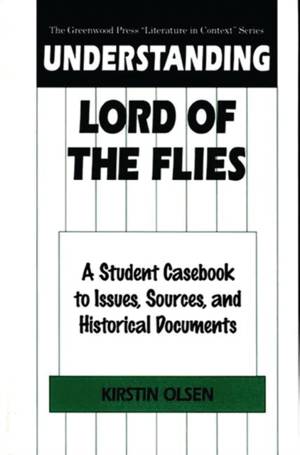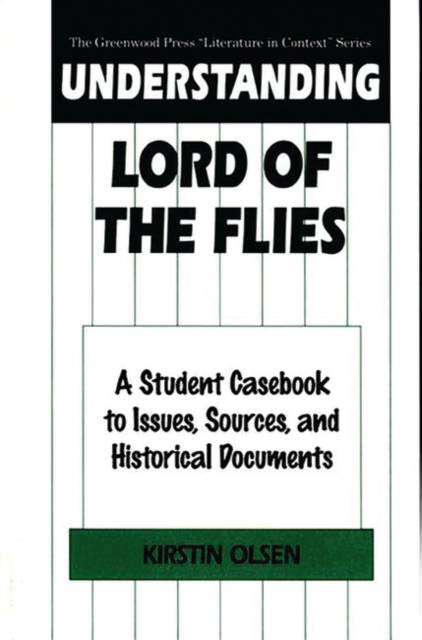
- Afhalen na 1 uur in een winkel met voorraad
- Gratis thuislevering in België vanaf € 30
- Ruim aanbod met 7 miljoen producten
- Afhalen na 1 uur in een winkel met voorraad
- Gratis thuislevering in België vanaf € 30
- Ruim aanbod met 7 miljoen producten
Understanding Lord of the Flies
A Student Casebook to Issues, Sources, and Historical Documents
Kirstin OlsenOmschrijving
A seemingly simple tale of schoolboys marooned on an island, Lord of the Flies has proven to be one of the most enigmatic and provocative pieces of literature ever published. This casebook probes the many layers of meaning in the novel, examining its literary, philosophical, historical, scientific, and religious significance. Beginning with a literary analysis that explores the universality of the novel's characters, the story is considered as subversion of the adventure tale, comparing it to such classics as Treasure Island and Robinson Crusoe. From these literary depictions of savagery, this study delves deeper, confronting the long-running philosophical and biological debates about human nature that have absorbed such influential thinkers as Rousseau and Darwin. The full meaning of Lord of the Flies is further contextualized by tracing historical views on civilization, from the Victorian perspective, to the very real horrors of World War II. This casebook integrates analysis and primary documents, with excerpts from materials as diverse as the Bible, the writings of Darwin, and war crimes interviews, to explore the very nature of human aggression and evil. This book will spark students to consider intriguing connections between Golding's masterpiece and broader concepts of civilization, altruism, political leadership responsibilities, and the history of western imperialism.
The interdisciplinary approach of this casebook helps students situate the lessons of Lord of the Flies in the context of Education, War and Postwar, the Adventure Story, Religion, and Biology and Evolution. The six topic sections integrate original illustrations and photos, literary excerpts, and primary documents and historic writings that help contextualize the work. Thought-provoking ideas for class discussions and research topics, with carefully chosen further reading suggestions enhance this volume as a teaching tool.Specificaties
Betrokkenen
- Auteur(s):
- Uitgeverij:
Inhoud
- Aantal bladzijden:
- 232
- Taal:
- Engels
- Reeks:
Eigenschappen
- Productcode (EAN):
- 9780313307232
- Verschijningsdatum:
- 30/05/2000
- Uitvoering:
- Hardcover
- Formaat:
- Genaaid
- Afmetingen:
- 163 mm x 243 mm
- Gewicht:
- 480 g

Alleen bij Standaard Boekhandel
Beoordelingen
We publiceren alleen reviews die voldoen aan de voorwaarden voor reviews. Bekijk onze voorwaarden voor reviews.











